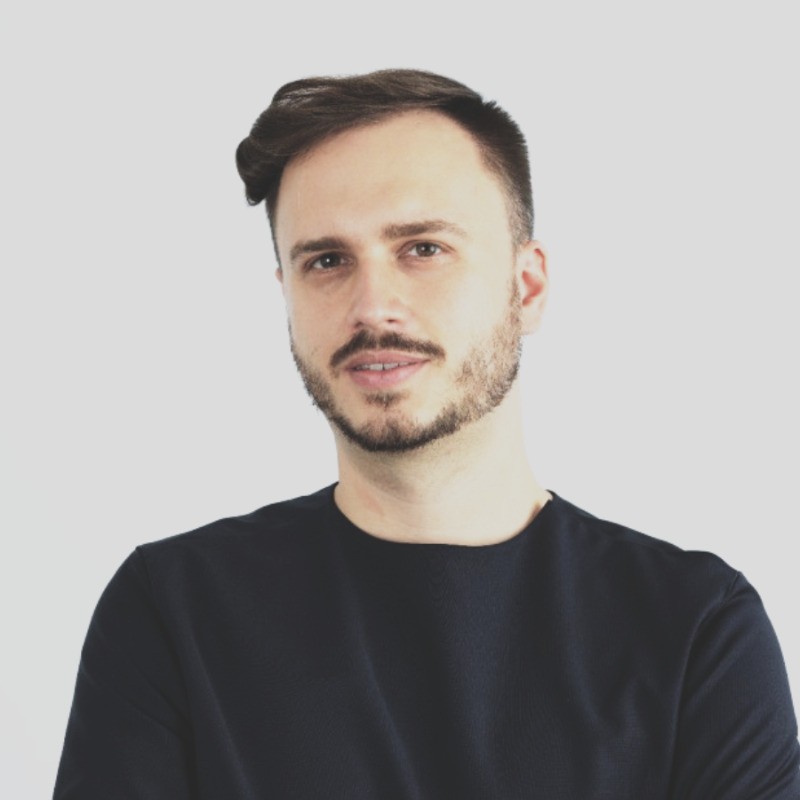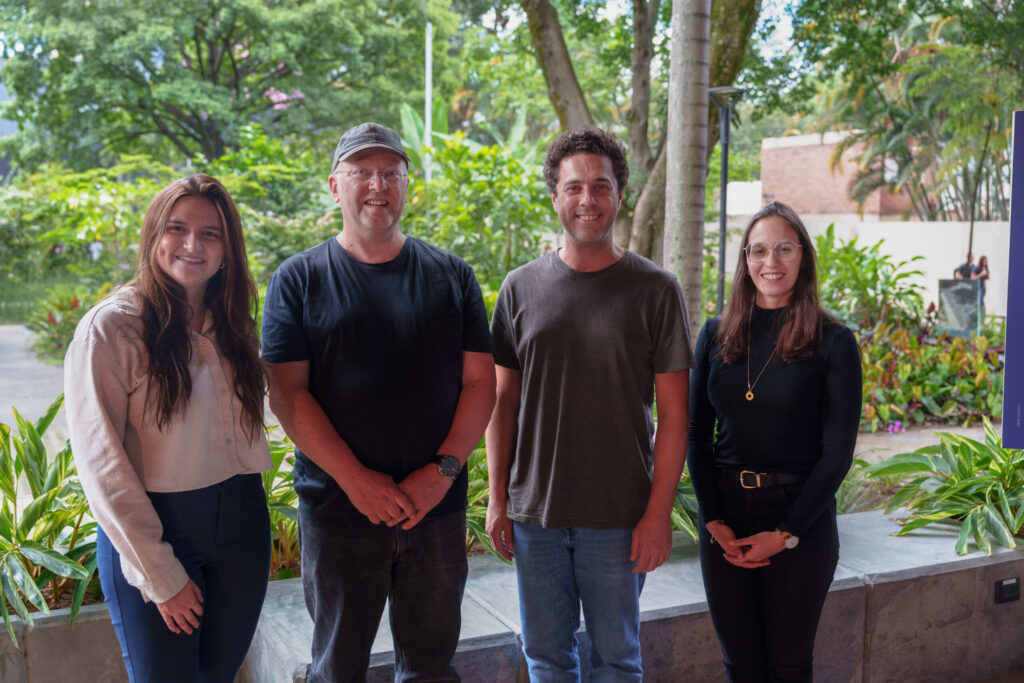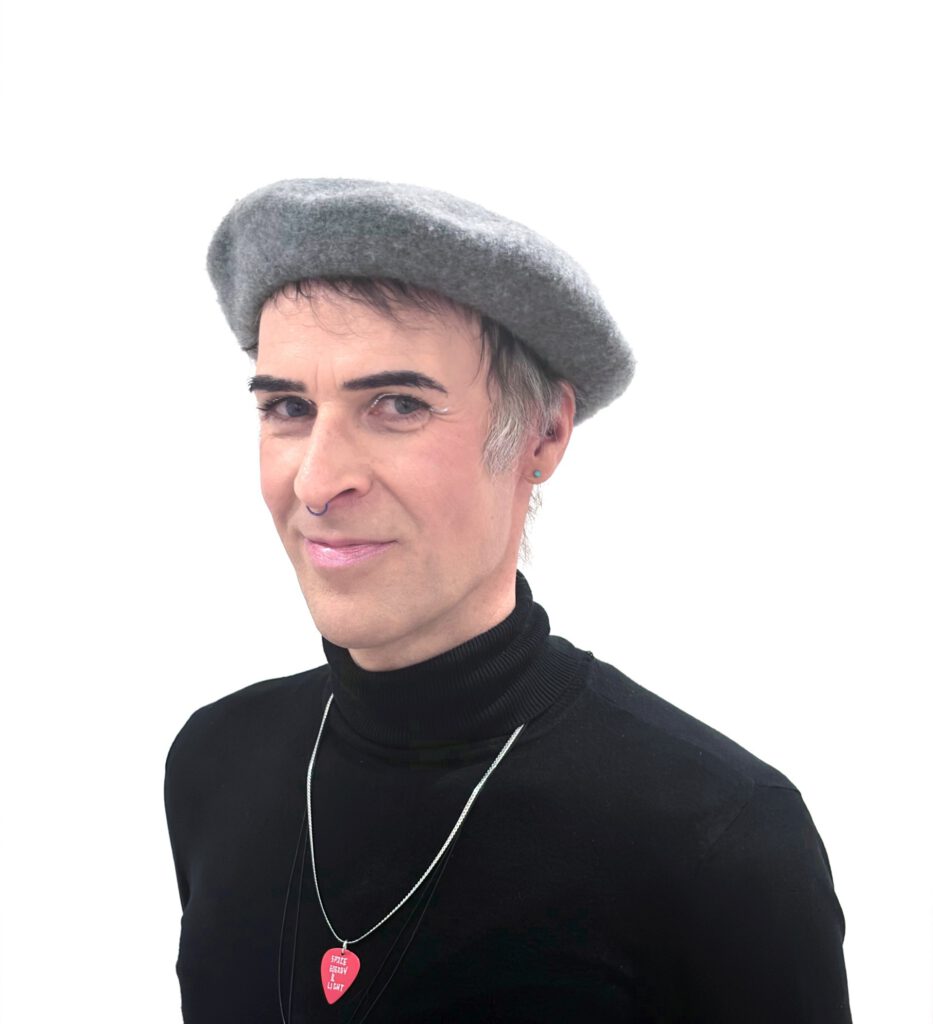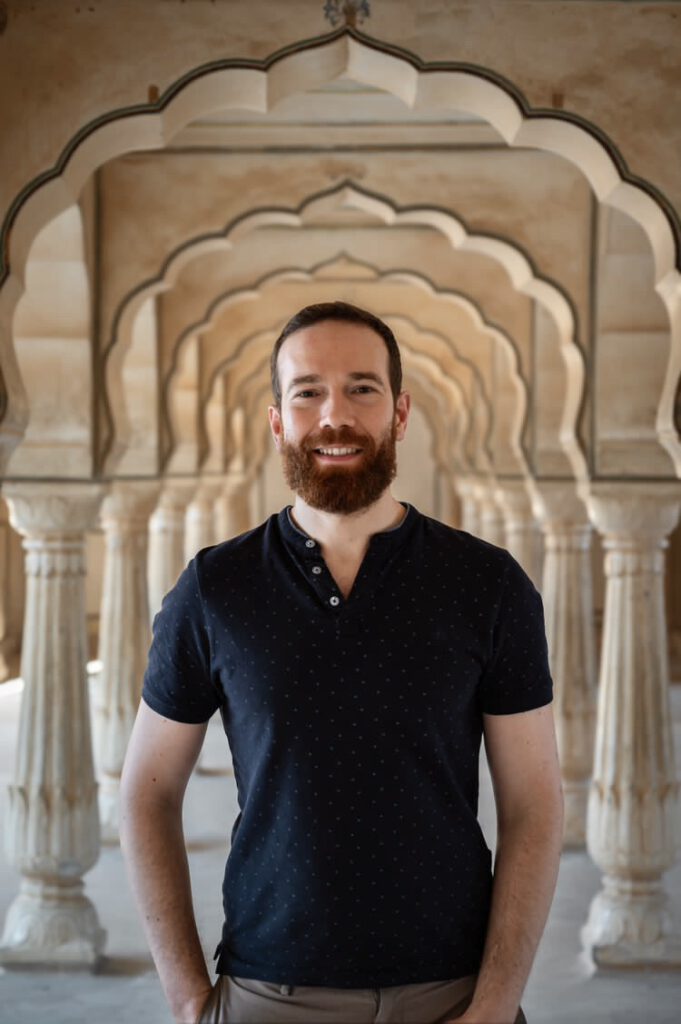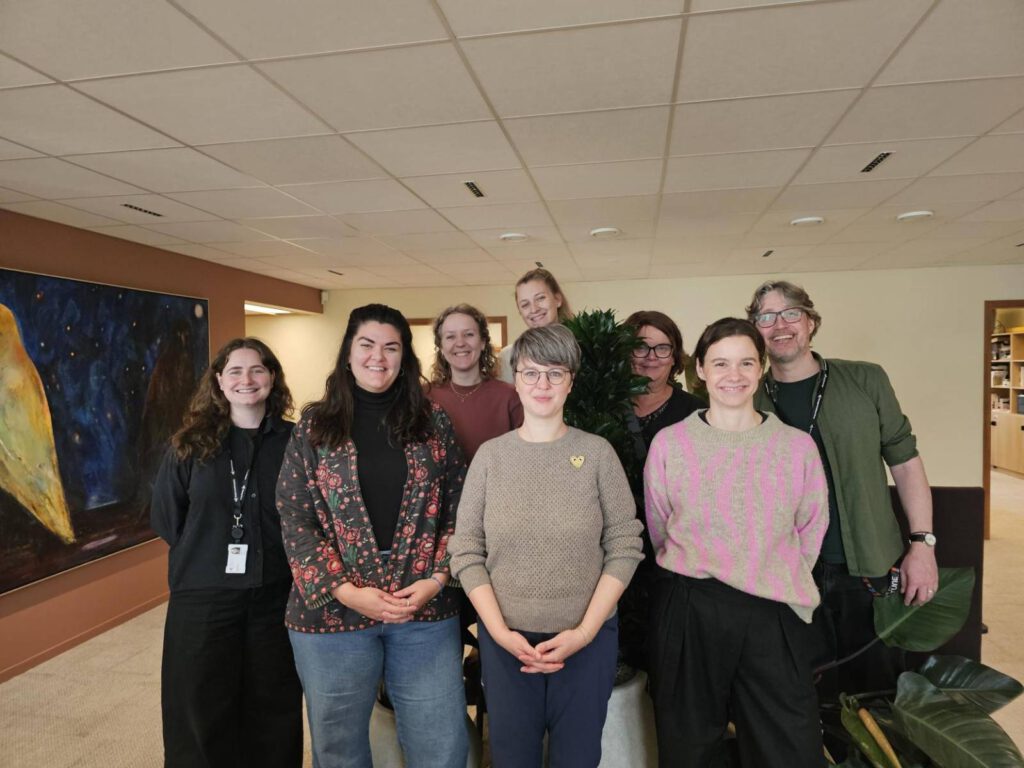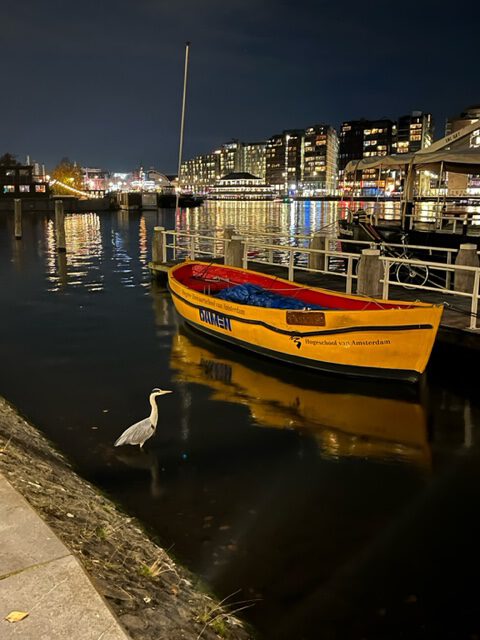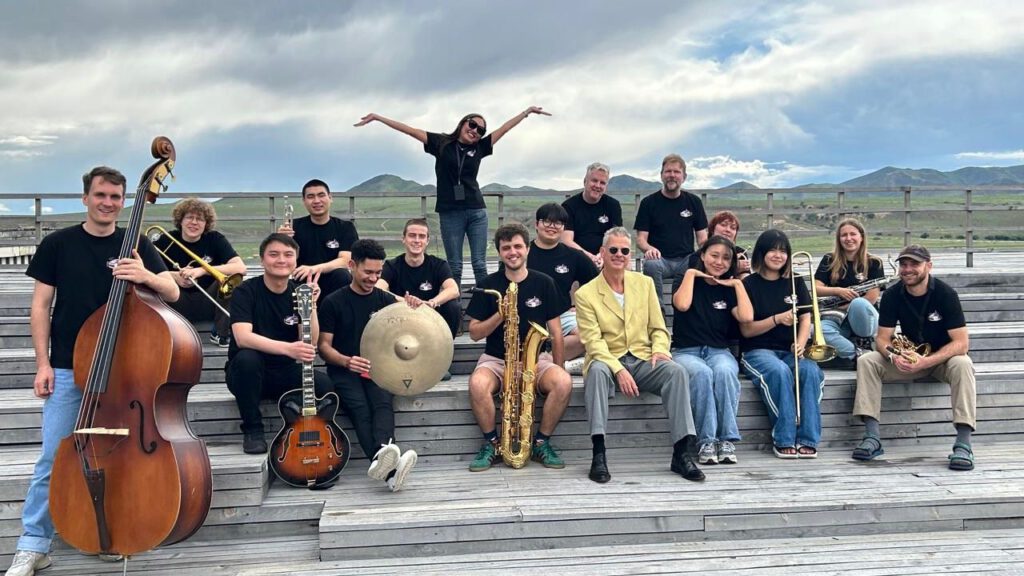New ideas and stimulation for my work
My Erasmus experience in Karlsruhe
My Erasmus adventure took me for two very intense and enriching days to the German-French border. After an eight-hour and fairly unproblematic train journey from Vienna to Karlsruhe (Baden-Württemberg), I was able to experience for myself the beauty of this small city. The most striking impression of the Karlsruhe University of Music I had (and this is certainly true of many other visitors as well) was the breathtakingly beautiful Gottesaue Castle, which houses the university.
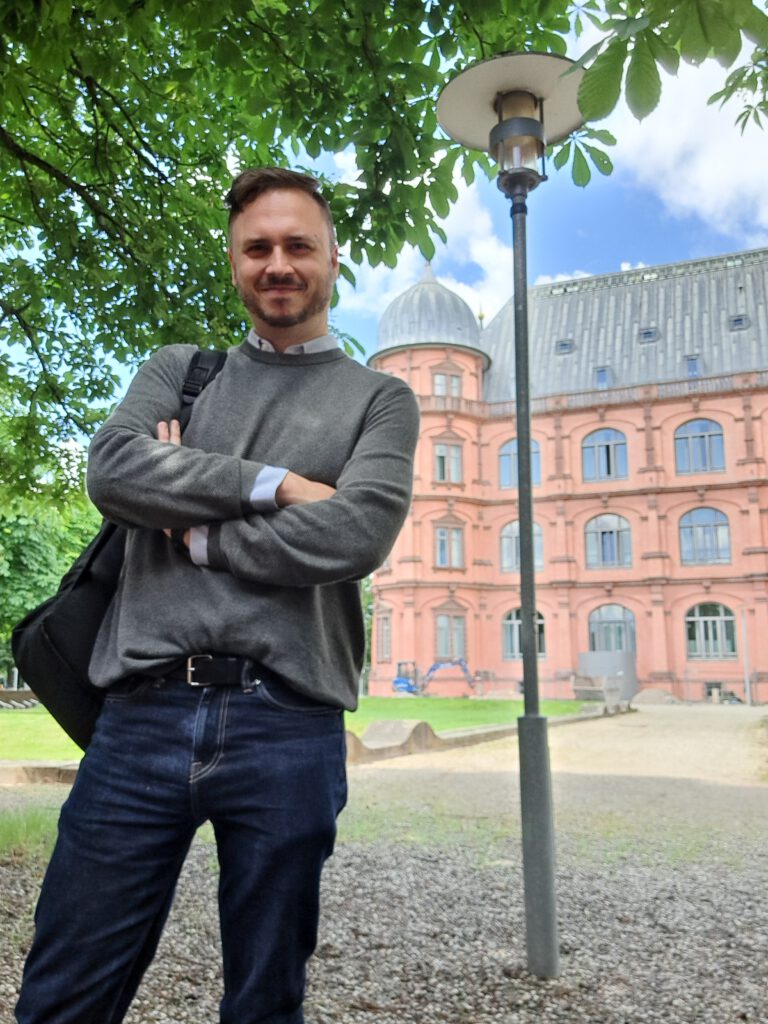
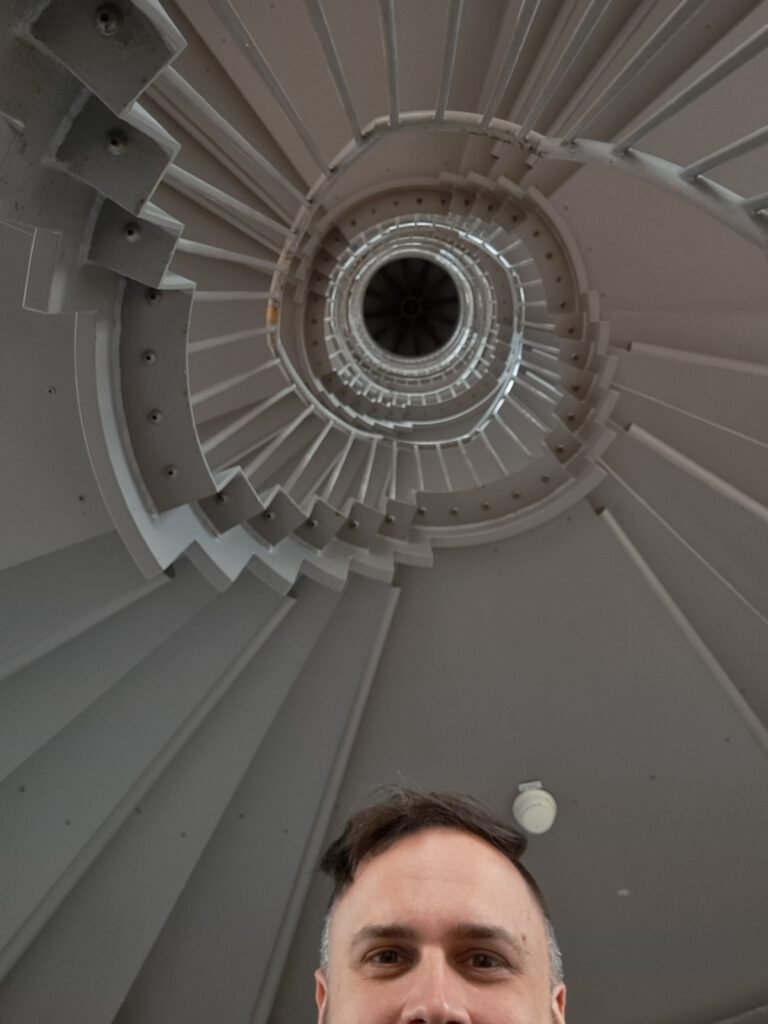
The university campus, where I had the pleasure of spending two days with students and teachers, consists of several buildings, and surrounded by these historic and modern structures is a green area that is available to members of the university and guests. The university’s soundscape was very familiar to me: young students were engaged in animated conversation, from the practice rooms one could hear virtuoso scale passages, and from the main building came monumental sounds of a work for choir and orchestra that was currently being rehearsed.
The purpose of my visit to Karlsruhe, however, was not the music itself but to join the students in reflecting on the history and contexts of compositions.
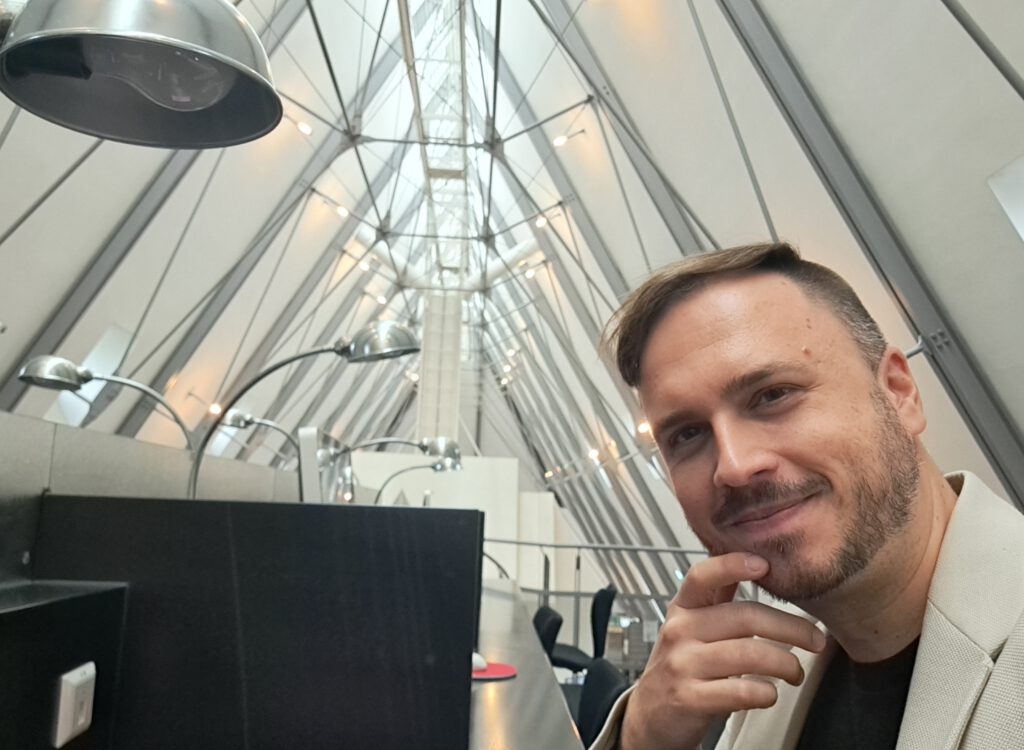
My second dissertation supervisor, Prof. Thomas Seedorf, had invited me to his office, a room in the tower where we discussed many things related to the past, present, and future. Our exchange centred on questions of university-level didactics and my current and impending research, but also touched on the familiar atmosphere (despite the school’s very international character) that is part of the experience of studying at the Karlsruhe University of Music. Outside your customary environment, it is easy to discover new perspectives on your home and your own activities.
I was able to present to a group of interested students several aspects of my research in a very friendly setting and initiate a discussion relating to the various specialisations that the university offers. Students of music education, instrumental studies, but also of musicology, computer music, and music journalism attend courses here together.
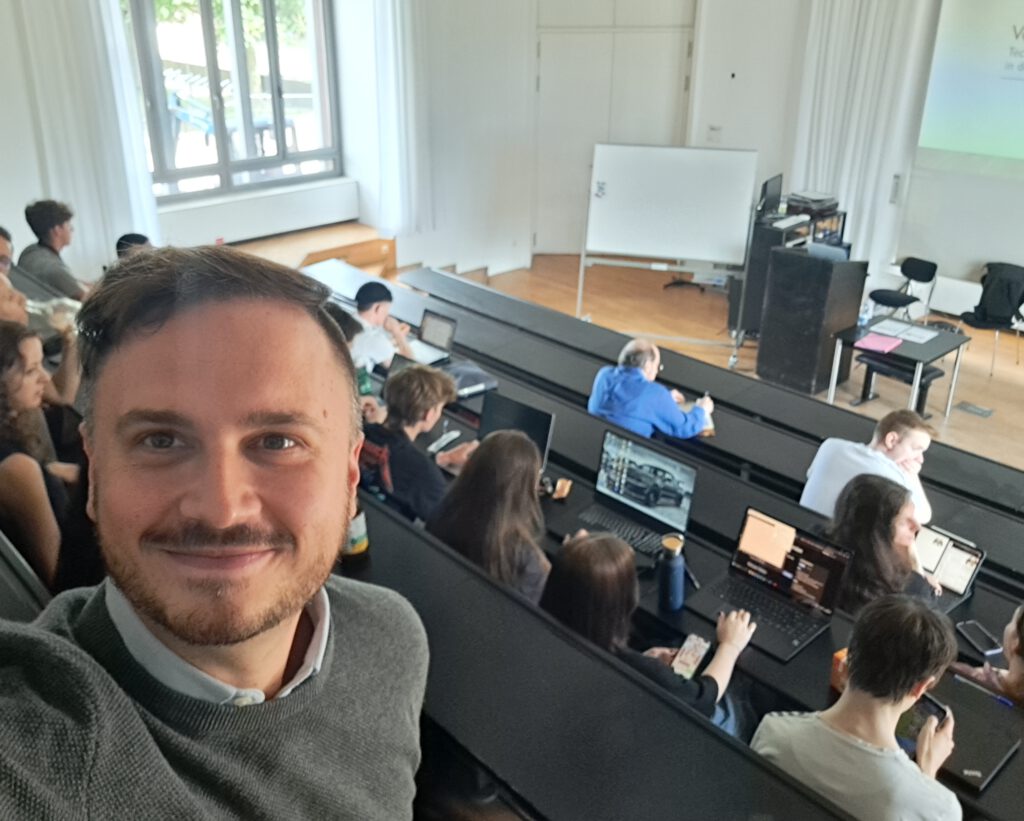
Especially due to the many different study focuses, it was important to present my own research in such a way that it provided connections for as many people as possible. In particular, the cultural-science-oriented performance research offered many opportunities for stimulating discussions: How strictly can pop music and classical music still be separated today? To what extent are interpretation and the technical medium of the music’s conveyance linked to each other? How do we consume music, and how do we allow ourselves to be influenced by the market for recorded music?
My Erasmus stay was a valuable experience for me. New ideas and stimulation for my work and important interpersonal encounters are a good payoff for the bureaucracy that one has to deal with before, during, and following the visit. I’m looking forward to my next Erasmus experience!
Are you a mdw teacher and interested in teaching in one of our partner institutions in Europe?

